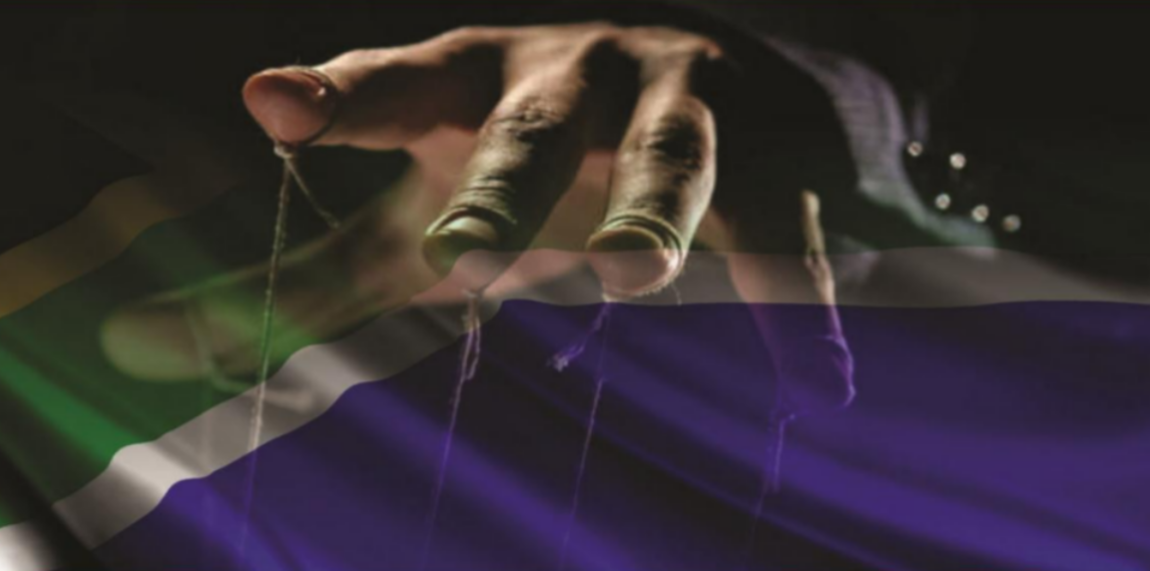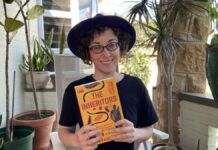After almost an hour delay, acclaimed Nigerian author Chimamanda Ngozi Adichie arrived at the Abantu Book Festival on Friday afternoon. Adichie was in conversation with South African feminist and writer Pumla Dineo Gqola about her books, her writings and her ideas – but also to address controversial comments she’s made about trans people and Hillary Clinton.
The room was packed to capacity with lines of people waiting to enter from outside the room. People were excited to hear her and greeted Adichie with loud cheers.
Whether people were there to engage with Adichie about her writings or just there for the celebrity allure of the writer, there was no doubt the air was tinged with a lot of excitement.
Even with all the excitement in the room, Adichie’s presence at the Festival was deeply controversial.
Previously Adichie has made transphobic remarks in an interview with Britain’s Channel 4 News when she said: “When people talk about, ‘are trans women women?’ my feeling is trans women are trans women.” Adichie’s remarks implied that trans women aren’t ‘real women'” which is a damaging stereotype that transgender people constantly struggle against and find deeply offensive.
Adichie said when she first heard the backlash against her comment, she thought she had been treated badly. “While thinking about it, I felt bad about it. I think people always want to cut down people who are above.” she said.
Adichie said she then stepped back and thought about her comments. She explained herself saying: “Female-bodied people have different experiences to those who are not. People who are not female bodied just have not shared those experiences.”
She added: “To acknowledge that does not mean to prioritise one experience over the other.”
Adichie then said that she thinks transwomen do make feminist arguments. “They make the best argument that we cannot be limited by our bodies,” she said.
In April, Adichie came under fire again for an interview she did with Hillary Clinton. Fans of the writer might have hoped that she would interrogate Clinton about the disastrous policies that she and Bill Clinton helped push, including her terrible human rights record as US Secretary of State. Instead, Adichie used the opportunity to fawn and celebrate Clinton and what she stood for.
Answering a question about how people should she was too charming to Clinton and even Michelle Obama, Adichie said she owns that and feels uncomfortable with cancelling.
“You are cancelled if there is smallest flaw against you. I admire Hillary deeply and I am not going to ask her to take responsibility for what a man did,” she said.
Adichie said she wouldn’t ask Michelle Obama about Syria and drones as she spoke to her about her book.
Another point of controversy was her comments on post-colonial theory. When asked about her opinion on it at the Paris edition of the Night of Ideas, a cross-continental initiative run by the French Institute, she said: “Postcolonial theory? I don’t know what it means. I think it is something that professors made up because they needed to get jobs.” This comment was to the chagrin of thinkers who believed she’d disregarded a body of African thinking that to a large extent gave breath to her own literature
Here’s why it’s helpful to believe in post colonial theory. Because then your answer to “Does Nigeria have libraries?” might be, “Yes, but they lack books and journals because the World Bank and IMF forced Nigeria to de-fund public education.” https://t.co/8hEuEWvgmP
Shailja Patel (@shailjapatel) January 27, 2018
She was clear that her feminism isn’t necessarily rooted in academic theory, but rather in the example of her grandmother. “I want to craft a feminism that is firmly rooted in the past rooted in my grandmother,” she said.
She said she doesn’t care much for feminist texts but more for the textured lives of her characters who she said should be seen as feminists.
“Maybe that’s because I’m a storyteller,” Adichie said.
Featured image by Mohammed Jameel Abdulla









